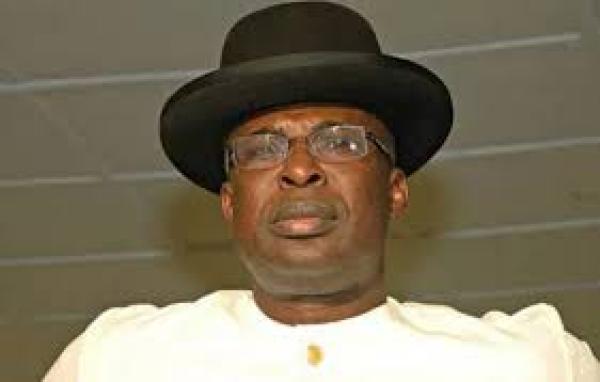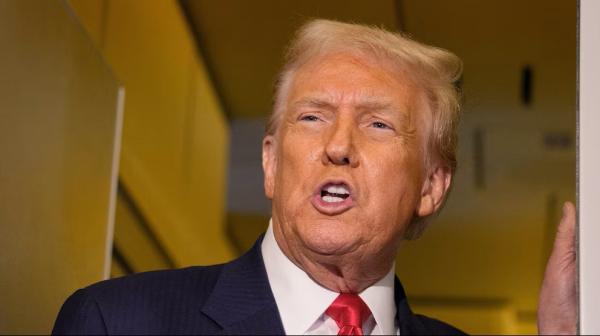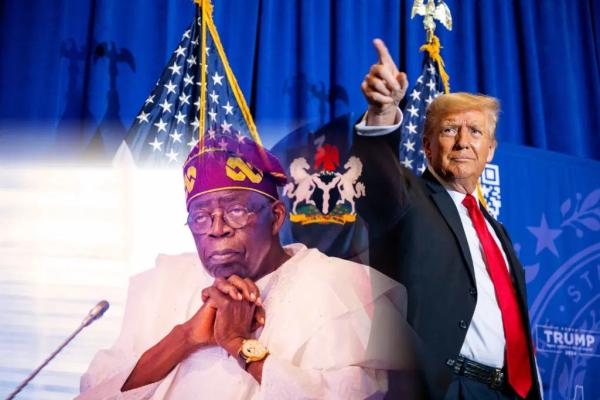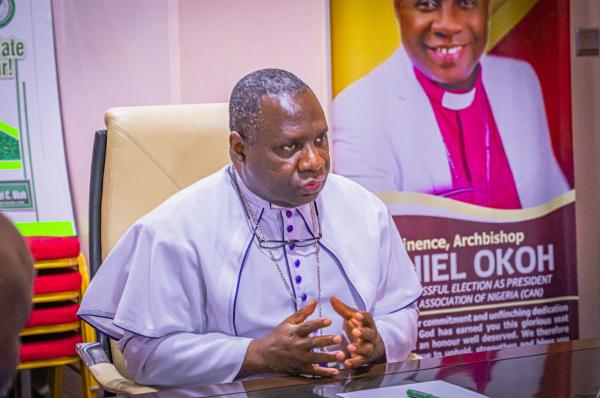
One question on the lips of many followers of the African Development Bank (AfDB) before its just concluded 50th Annual Meetings in Abidjan, Côte d’Ivoire last week was who will come top in the development bank’s Presidential elections. The question became imperative because of the gripping nature of the race and the lobbying that followed the high level power play against the credentials of the eight candidates that vied for the position.
Apart from Nigeria’s candidate, Dr. Adesina Akinwumi, other candidates in the election were: Sufian Ahmed (Ethiopia); Jaloul Ayed (Tunisia); Kordjé Bedoumra (Chad);Cristina Duarte (Cabe Verde); Samura M W Kamara (Sierra Leone);Thomas Z Sakala (Zimbabwe) and Birama Boubacar Sidibé (Mali).
They all paraded credentials that can make them take over the leadership of the development bank from the outgoing President Donald Kaberuka, who led the AfDB for ten years.
A well placed source disclosed that there were behind the scene moves by the various governments of the candidates for their nationals to win the elections. So, it was not surprising that there were alleged gang up by some regional blocks against the candidacy of Nigeria, just as they said there was an unwritten agreement that Nigeria and South Africa should not lead the bank as the continent’s economic power.
So, it was not surprising that the Southern African Development Community ( SADC) had a sort of Primaries before the AfDB election to choose a candidate the regional bloc will support and they ended up backing the candidacy of the Zimbabwean, Thomas Sakala, a former AfDB Vice President of country and regional programmes.
SADC said they believed Sakala was the best candidate for the position, but that was not to be, as the result of the election showed as only three candidates were left to fight it out till the end in the nerve-wracking race to head the 50-year-old bank. Nigeria’s Akinwumi Adesina; Cape Verde’s Cristina Duarte and Kordje Bedoumra of Chad were the only contestants still standing by early evening on Thursday, as AfDB governors sought a successor to Donald Kaberuka.
To win the election, a candidate needed at least 50.01% of both the regional and non-regional votes. The statement of the Voting Powers used in the computation of the votes during the election of the President of the Bank was 3,844,574 for the Africa regional members and when shared out gave a total of 59.722 per cent voting power.
The total non-regional votes was 2,592,862 and that amounted to 40.278 per cent voting power. So, in essence the grand total votes were 6,437,435 which gave all members, both African and non-Africans, 100 percent voting power.
Nigeria has the highest voting power of the bank’s members with 9.3%, with the SADC 14 % votes already lost. Nigeria was said to have looked up to the votes of the non-regional members that were brought in in 1982 to help boost the capital base of the bank and have about 40% of the voting power.
Nigeria delegation led by the country”s representative in the board of AfDB, Dr. Ngozi Okonjo-Iweala worked on the United States of America which has the second -highest number of votes after Nigeria.
An insider revealed that during the election, Sierra Leone’s Foreign Affairs minister Samura Kamara, who as finance minister led his country’s reconstruction effort, was the first to fall in the opening round, though few eyebrows would have been raised at his early exit, given West Africa had propped up three other stronger candidates.
The elimination of Ethiopia’s candidate, Sufian Ahmed, after that of Sierra Leone’s was surprising to many as they thought about what he did as his country’s finance and economic development minister, thinking he would last till the last rounds of the voting. Mali’s Birama Side lasted longer than forecast by analysts, becoming the third candidate to be knocked out.
Tunisia’s Jaloul Ayed was next, as North Africa lost a chance to head the bank for a third time. The bank’s sixth president, Omar Kabbaj, is credited with instituting reforms that set the bank on its current path, while Kaberuka cemented its place as the continent’s premier development financier.
The Zimbabwe’s candidate, Thomas Sakala, a former AfDB insider, who was the candidate of SADC was the next to fall by the way side as it was revealed that he had been a beneficiary of “primaries” which is perceived to be against the AfDB rules.
With the elimination of some strong contenders from the race, Nigeria’s governor in the bank, Finance minister Ngozi Okonjo-Iweala immediately tweeted’ “Great news! Nigeria’s Akin Adesina has won the AfDB presidency after our strong campaign! Great campaign! Great candidate!”
Immediately, Adesina’s name was announced by Albert Toikeusse Mabri, Minister of Planning and Development for Côte d’Ivoire, and Chairman of the Board of Governors of the African Development Bank as the winner of the election and the next President of African Development Bank Group.
Mabri noted that the result “was an expression of the willingness of all the member countries,” and he applauded the “good spirit that prevailed during the election process that was not marked by any tension.” Just like Ngozi Okonjo-Iweala tweeted, it was indeed a great campaign and a great candidate as Adesina Akinwumi would demonstrate when he paid glowing tributes to Nigeria’s immediate past President Goodluck Jonathan for nominating him for the job.
“I will want to appreciate Nigeria’s immediate past President Jonathan for nominating me and my President Muhammdu Buhari for the support and my sister, Dr. Ngozi Okonjo-Iweala for their supports.” Adesina said without his nomination by Goodluck Jonathan that he would not have been the President of the AfDB today.
In his acceptance speech, Adesina, who almost betrayed his emotion, said “Today, I have been given a great responsibility. I am humbled by this remarkable vote of confidence in me” on the part of the Bank’s Board of Governors, who met during the Bank Group’s 50th Annual Meetings in Abidjan, Côte d’Ivoire.
With the election over, attention will be on Adesina Akinwumi to deliver on his vision for the Africa Development Bank Group, which he calls ‘Building on the Successes of the African Development Bank and Positioning to Effectively Address Emerging Challenges” when he finally assumes power on September 1, 2015 at the bank’s head office in Abidjan.
Adesina said in his vision statement that Africa’s growth has been uneven as incidence of poverty remains a challenge across Africa with about 40% of the population living in extreme poverty.
“With such a large share of the population disconnected from the growth process, African economies face the challenge of growing discontent from disenfranchised youths, which could lead to economic, social and political fragilities.
Adesina who said he will focus on women issues as he is a big proponent of women’s empowerment added that the private sector growth faces challenges to fully unlock its potential. “Industrialization of the continent remains low, limiting the space to generate quality jobs. Africa’s challenge is to generate high – quality economic growth that is inclusive, sustainable and more effective in reducing poverty and addressing social inequities.”
Adesina disclosed that his vision is to help build a new Africa with prosperous, sustainable and inclusive growth; one that is peaceful, secure and united, regionally integrated and globally competitive. “A continent filled with hope, opportunities, liberties and freedom, with shared prosperity for all. An Africa that is open to the world, one that Africans are proud to call home.”
Adesina said the African Development Bank under his presidency would focus on the remarkable gains already made by previous Presidents of the Bank and work closely with the Bank’s shareholders to implement its strategic plan to position the Bank for even greater performance, efficiency and effectiveness in delivering transformational impact for Africa.
“My focus will be on growing the African private sector to help drive industrialization and wealth creation for Africa. I will prioritize the growth of small and medium sized companies, grow middle-sized capitalized companies and support the emergence of African global multinational companies.”
Adesina noted that the Bank will design advisory support services dedicated towards supporting the industrialization of Africa. “The infrastructure operations of the Bank will be closely aligned with the industrialization agenda to address the critical infrastructure gaps limiting industrial growth, especially power, water, gas, logistics and transport.
“The advisory service for industrialization will also target reforms in the fiscal, regulatory and business environment to further reduce the cost of doing business in Africa.” While commending the outgoing President Donald Kaberuka, Adesina Akinwumi described him as one of Africa’s outstanding leaders, promising to sustain his legacy by leveraging on his vision to achieve an economically integrated and prosperous continent.
For his part, President Kaberuka said he was “fully confident that under Adesina’s leadership, the Bank would move to the next level. And I know that you will extend the same support you gave me to the new President and his team.”






















